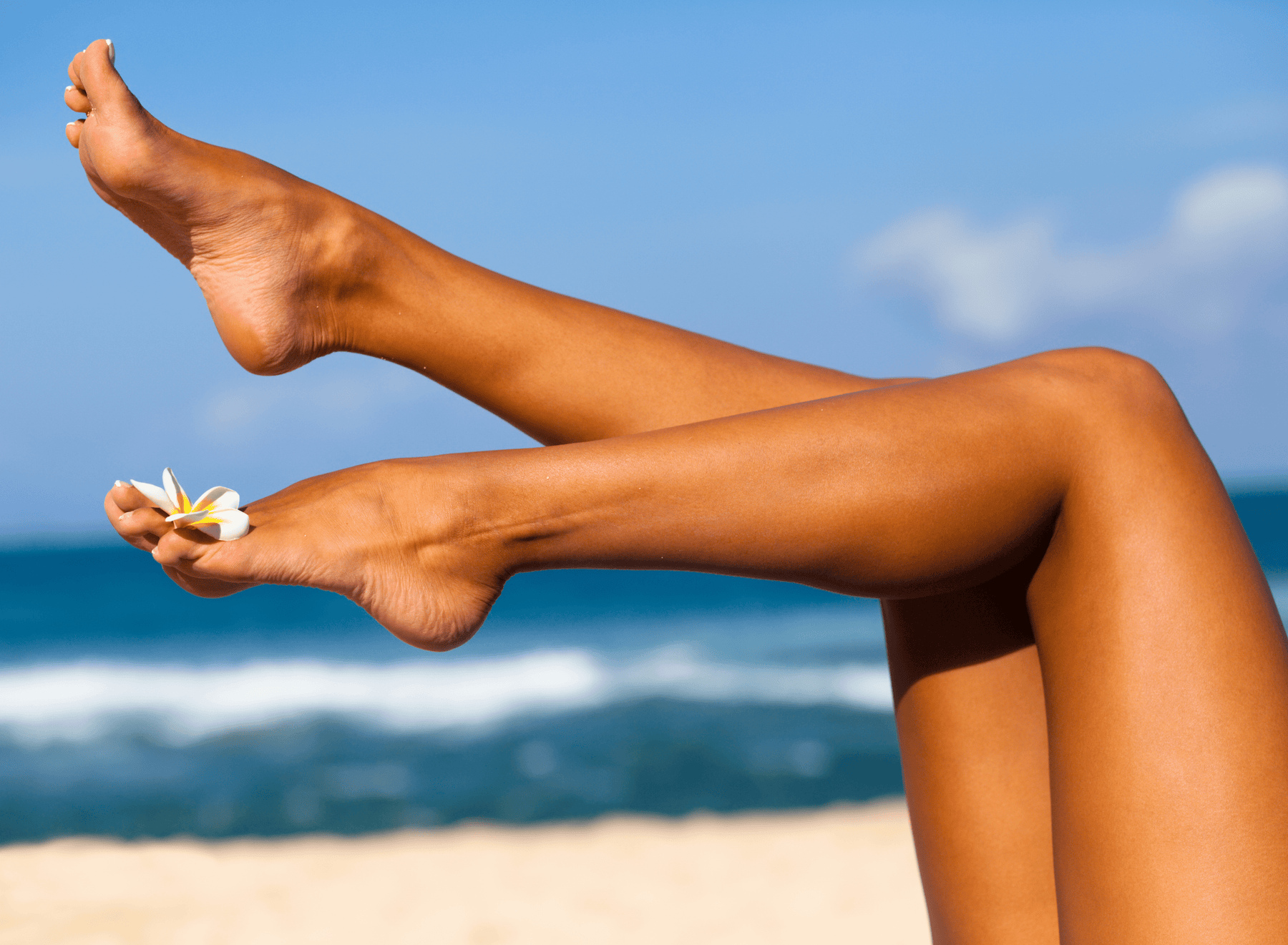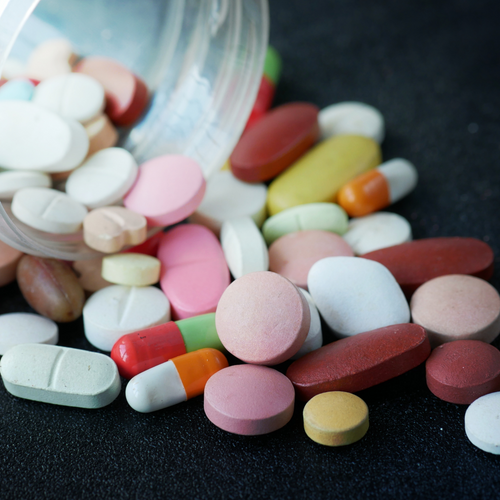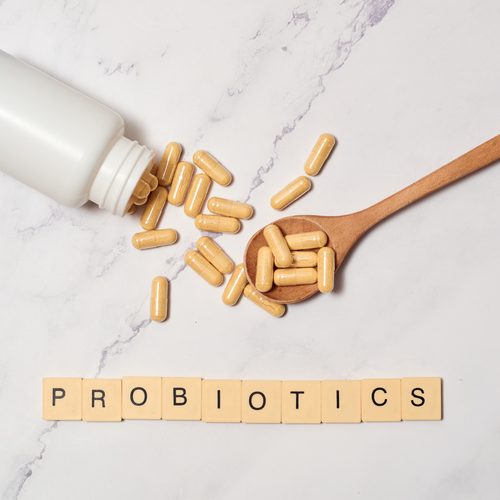What to remember :
-
Water retention is an accumulation of fluid between cells, often linked to poor blood or lymphatic circulation.
-
Regular physical activity and good hydration are the first steps to adopt to promote the natural elimination of water.
-
Certain plants such as dandelion, mouse-ear hawkweed or nettle have diuretic and draining properties that are useful for relieving swelling.
-
Limiting salt and carbohydrates while increasing your potassium intake (avocado, lentils, dried fruits, etc.) helps regulate your water balance.
-
Targeted methods such as lymphatic drainage or wearing compression stockings can improve circulation and reduce edema.
The human body is composed of over 60% water, which circulates continuously through the blood and lymph before being excreted by the kidneys. Water is life. But if water is difficult to excrete, it can accumulate in tissues and become trapped between cells, leading to swelling.
What is water retention?
This phenomenon, called water retention, is quite common, especially among women. Water retention refers to the accumulation of fluids in the space between cells when the body absorbs more water (hydration and water from food) than it eliminates (urine and perspiration). This can lead to bloating of the abdomen, lower limbs, painful cellulite, and a feeling of heaviness. However, water retention does not necessarily imply body fat gain.
But how can this be explained? When blood circulation is weakened, the pressure in the capillaries increases, which increases permeability. This dilation creates an excessive accumulation of fluid between the tissues and leads to the formation of edema in the tissues.
Our 8 tips for eliminating water retention
First and foremost, it's important to determine what's causing this water retention. It's therefore important to consult a doctor promptly to rule out any risk of potentially serious illness. However, it's possible to implement healthy lifestyle habits to limit symptoms.
#1 - Practice regular physical activity
To quickly reduce swelling, avoid sitting or lying down all day, as this can lead to water retention. Certain sports promote blood circulation while also facilitating perspiration: ideal for combating water retention. These sports include yoga, Pilates, running, and water sports. Bonus points if you practice your sport in cold water, as this improves venous return by boosting blood and lymphatic circulation.
#2 - Drink more water
It sounds contradictory, but dehydration is one of the main causes of water retention. Maintaining good hydration encourages your body to eliminate excess water stored in the tissues, helping to reduce swelling. And for even more effectiveness and better taste, you can opt for a herbal infusion with draining properties. No more bloating and that feeling of heavy legs!
#3 - Focus on plants with diuretic and draining properties
Some medicinal plants are known for their diuretic and draining properties. Plants that combat water retention include:
-
Dandelion : thanks to its purifying properties, it fights against water retention and cellulite by promoting the elimination of water and toxins.
-
Mouse-ear hawkweed : its powerful diuretic power stimulates the elimination of water and toxins through the kidneys
-
Nettle: known for its purifying and remineralizing properties, its leaves effectively combat water retention by promoting blood circulation.
-
Ginger: Its richness in minerals and enzymes reduces the sodium load and naturally releases excess water.
#4 - Eat fewer carbohydrates
Consuming too many simple carbohydrates causes an insulin spike, which is itself linked to the reabsorption of water and sodium by the kidneys. Indeed, carbohydrates like bread, white rice, pasta, and of course sugar have the ability to retain water. So to get rid of that feeling of heavy legs, a bloated stomach , and painful cellulite, it's important to reduce your carbohydrate intake.
#5 - Reduce your salt intake
Salt can be a real enemy. Excessive salt consumption can lead to water retention, which makes you feel bloated and swells your belly. Sodium is an essential mineral that retains water in the body, so the first step when experiencing water retention is to reduce the amount of salt in your diet. In fact, the WHO recommends limiting our salt intake to 5 grams per day, or one teaspoon. To limit this, try reducing your salt intake by avoiding processed foods and cooking at home with herbs and spices to enhance the flavor.
#6 - Increase your potassium intake
A diet too rich in salt and meat can cause potassium deficiencies and promote water retention. Potassium is a mineral known for effectively relieving bloating, swollen stomachs, and digestive problems. Indeed, it maintains a good electrolyte balance and regulates the acid-base balance . To reduce belly fat during menopause, you can rely on these foods rich in potassium: lentils (810 mg per 100g), dried dates (790 mg per 100g), prunes (732 mg per 100g), almonds (705 mg per 100g), spinach (662 mg per 100g), avocado (650 mg per 100g), chestnuts (600 mg per 100g), mushrooms (520 mg per 100g), walnuts (450 mg per 100g), apricots (440 mg per 100g).
#7 - Perform lymphatic drainage
A massage is a must! Water retention can be the cause of poor lymphatic circulation. To relieve it, there is a mechanical lymphatic drainage method. Lymphatic drainage is a massage that involves stimulating the circulation of lymph, a colorless liquid that circulates in the lymphatic vessels. The goal of this massage is to promote the evacuation of excess fluids. It is therefore very effective in cases of water retention and the sensation of heavy legs.
#8 - Wear support stockings
If your water retention is venous in origin, there's a slightly less aesthetic solution: compression stockings. Highly effective, they could well become your best ally! By compressing the legs, they help reactivate blood circulation to limit edema.
Conclusion
Water retention is a common phenomenon, often uncomfortable, but fortunately reversible in the majority of cases. By adopting good lifestyle habits—regular physical activity, a balanced diet, sufficient hydration, and the use of draining plants—it is entirely possible to relieve the sensations of swelling and heavy legs. If symptoms persist or worsen, it is essential to consult a healthcare professional to identify the cause and adapt the treatment. The right reflex? Listen to your body and act gently, but regularly.
Sources :
[1] Cadnapaphornchai, MA, Gurevich, AK, Weinberger, HD, & Schrier, RW (2001). Pathophysiology of sodium and water retention in heart failure. Cardiology, 96(3-4), 122-131.
[2] Michael Felker, G. (2010). Diuretic management in heart failure. Congestive Heart Failure, 16, S68-S72.
[3] Wang, L., Gao, J., Li, L., Huang, J., Yang, Y., Xu, Y., ... & Liu, Y. (2021). Characterization and Biological Activities of Polysaccharides from Dandelion (Taraxacum officinale) Leaves. Starch-Starke, 73(3-4), 2000051.
[4] Upadhyay, S., Shrivastava, S., Kumar, D., Chaturvedi, S., Singh, SP, & Khinchi, MP (2017). A Review on Water Retention. Asian Journal of Pharmaceutical Research and Development, 1-9.
[5] Gallen, IW, Rosa, RM, Esparaz, DY, Young, JB, Robertson, GL, Batlle, D., ... & Landsberg, L. (1998). On the mechanism of the effects of potassium restriction on blood pressure and renal sodium retention. American journal of kidney diseases, 31(1), 19-27.














